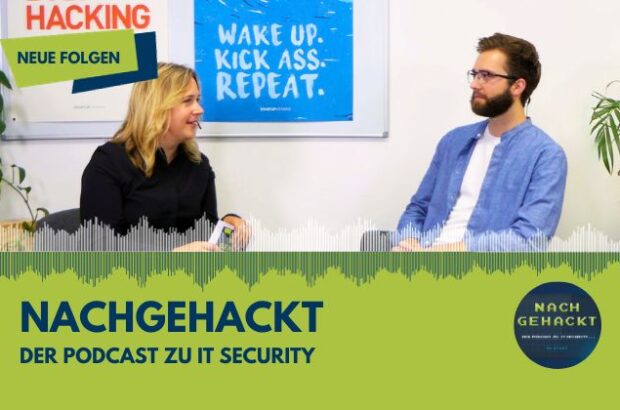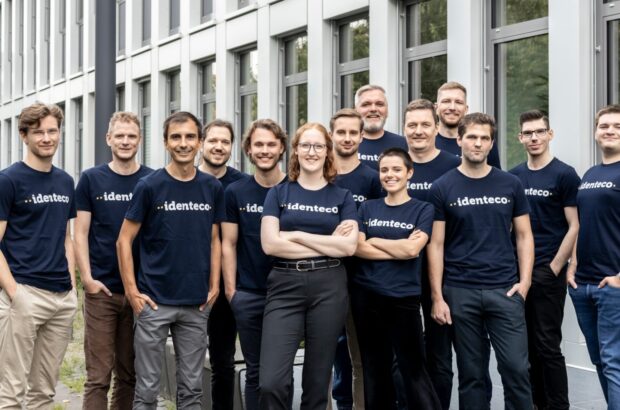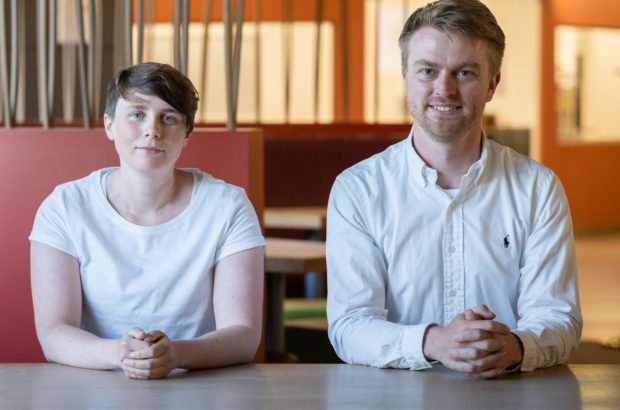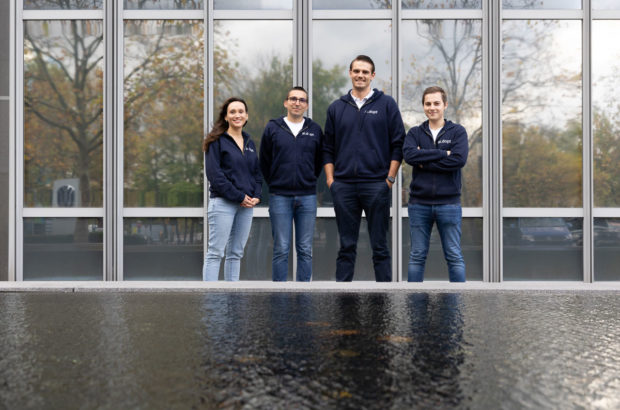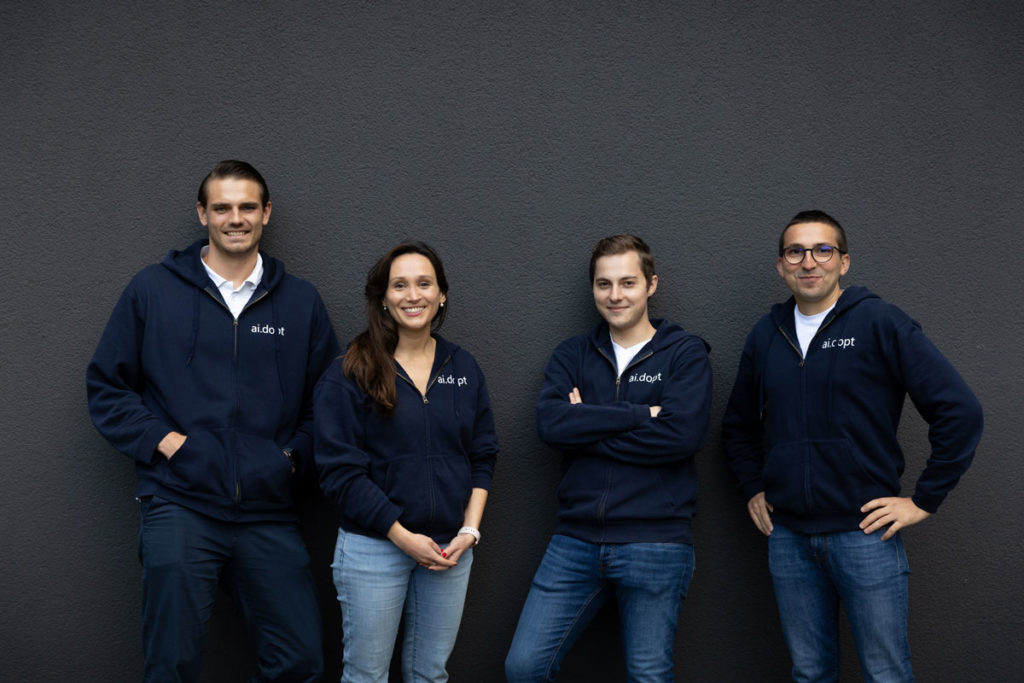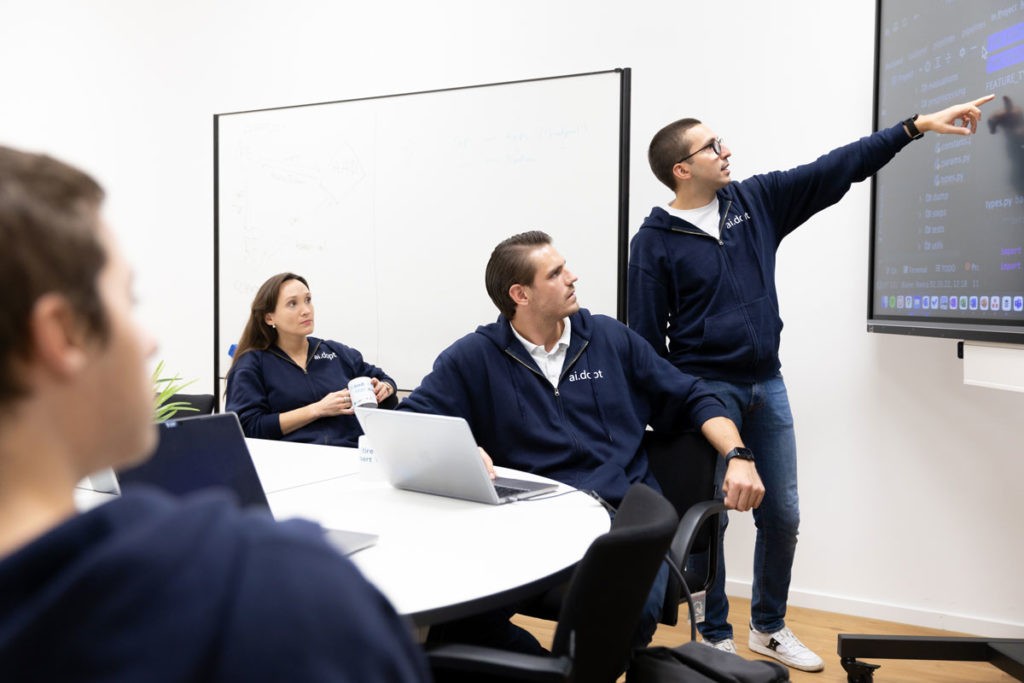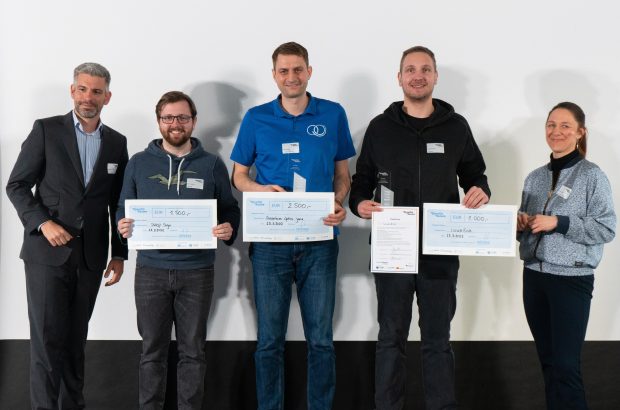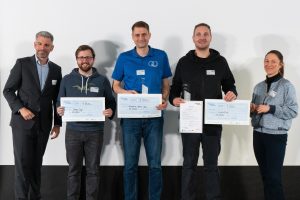IT security concerns everyone – and is more important than ever. Just in time for European Cyber Security Month, the IT security podcast “Nachgehackt” returns in October with new episodes. To kick things off, host Henrike Tönnes accompanies researcher Jonas Ricker into the world of deepfakes.
Every year in autumn, IT security is the focus of attention for four weeks. European Cyber Security Month (ECSM) was launched in 2012 to make people all over Europe aware of the challenges and dangers of the digital world in October. “Nachgehackt – Der Podcast zu IT-Security” is also intended to contribute to this. In five fresh episodes, the presenter Henrike Tönnes, together with experts and exciting people, illuminates exciting topics from the field of IT security in an easily accessible and entertaining way.
The opening episode on 17.10.2023 is about a highly topical subject: deepfakes. Deceptively real images of the Pope in a stylish down coat or Donald Trump in police custody – deepfakes are fascinating and raise the question: Can we finally no longer trust our eyes (and other senses)? Henrike Tönnes dives into the world of deepfake photography together with Jonas Ricker, PhD student at the Chair of Machine Learning at Ruhr-Universität Bochum. How are the artificial images produced? What dangers lurk in the new, AI-generated visual reality? And how can deepfakes be debunked? Jonas Ricker, who is researching the technical ways to detect fake images in his doctoral thesis, knows the answers. The podcast Nachgehackt is in German.
17.10.2023
#11 Deepfakes: Tracking down visual illusions
With M.Sc. Jonas Ricker ( PhD student at the Chair of Machine Learning , RUB)
14.11.2023
#12 More than just capital: what connects VC investors and cybersecurity startup
With Willi Mannheims (Managing Partner eCAPITAL)
and Dr.-Ing. Carsten Willems (Co-founder & CEO VMRAY)
12.12.2023
#13 5G? 6G? But secure!
With Dr.-Ing. David Rupprecht (RUB Faculty of Computer Science, co-founder of Radix Security)
and Prof. Dr.-Ing. Aydin Sezgin (RUB Chair of Digital Communication Systems)
09.01.2024
#14 Your Data, You Rule! About digital sovereignty
With Prof. Dr. Karola Marky (Faculty of Computer Science, Head of Research Group “Digital Sovereignty”)
13.02.2024
#15 Cybersecurity start-up adventure: A founder shares his story
With Sergej Dechand (Co-Founder & CEO Code Intelligence)
All episodes of “Nachgehackt” are available on popular podcast platforms such as Spotify and Apple Podcasts. “Nachgehackt ” is also available as a vodcast on YouTube.
Spotify: https://open.spotify.com/show/0fn3tYRiZAR3wlkSw5vJdQ
Apple Podcasts: https://podcasts.apple.com/podcast/id1641242207
Podigee: https://nachgehacktpodcast.podigee.io/
Youtube: https://youtube.com/@Cube-re7qh
Nachgehackt is a production by Cube 5 and the Cluster of Excellence CASA at the Horst Görtz Institute for IT Security as well as PHYSEC GmbH in cooperation with Bochum Economic Development and Eurobits e.V.
